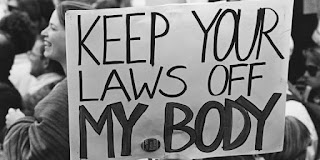Turkey unwilling to pay up
By Kyriacos Kiliaris
The Immovable Property Commission (IPC) in the north – charged with compensating Greek Cypriots who lost their property during 1974 – is no longer able to pay out compensations, due to a lack of funds.
According to the IPC’s head, Ayfer Erkmen, Turkey has stopped financing the Commission, which was set up following the decisions of the European Court of Human Rights (ECHR).
A total of 6,327 Greek Cypriots have applied to the IPC for the sale of their property, with the IPC having so far concluded 837 of the applications, and having paid out a total of GBP £179.3 million (€202.1 million).
“In order to be able to conclude the remaining applications, the Commission needs about GBP £2 billion,” Erkmen said.
However, Turkey, prior to providing additional funds to the IPC, demands Turkish Cypriot authorities implement a regulation that foresees contributions being made from the Turkish Cypriots.
As a result, the number of applications put forward by the Greek Cypriots has reduced significantly, said the head of the IPC.
Erkmen noted that there had been a boom in the number of the applications following the Demopoulos decision in 2010, when the ECHR recognised the rights of people living on Greek Cypriot properties.
But while in 2010 there were 397 applications filed, rising to 926 in 2011, in 2014 numbers dropped to 375, in 2015 to 182 and were down to 50 last year.
Erkmen said that measures taken by the Greek Cypriot side, such as to allow people to take out loans using their property in the north as collateral, have played a role in the drop of applications filed. However, the main reason is thought to be Turkey blocking the funds to the Commission.
“Turkey is demanding the legislative amendments to allow the authorities to contribute to the compensations paid out. The particular regulation has been waiting to be discussed by the assembly since 2014,” Erkmen continued.
He said Turkey justifies its stance by saying that when Greek Cypriot properties are passed over to Turkish Cypriots, their retail price immediately increases about 200%.
According to Ankara, the Turkish Cypriot owner of the property would then have to be taxed on this revenue.
“This is why Turkey has cut the financing of the Commission,” explained Erkmen.
However, Erkmen believes that “Turkey has shot itself in the foot”.
“According to decisions taken from 2014 onwards, Turkey must pay a total of £55 million for 133 cases. They have not paid anything. Some of the complainants have taken the matter to the ECHR,” Erkmen elaborated.
He argued that the payments should continue, claiming that they – the Turkish Cypriot side – are obtaining land at a very low price: “just think: we are paying £10.7 per square metre, that is £14,372 per acre”.
Erkmen also argues that paying off the compensation allocated would go a long way toward solving the property issue.
“The more land we obtain, the less of a problem it will be.”
The Immovable Property Commission (IPC) in the north – charged with compensating Greek Cypriots who lost their property during 1974 – is no longer able to pay out compensations, due to a lack of funds.
According to the IPC’s head, Ayfer Erkmen, Turkey has stopped financing the Commission, which was set up following the decisions of the European Court of Human Rights (ECHR).
A total of 6,327 Greek Cypriots have applied to the IPC for the sale of their property, with the IPC having so far concluded 837 of the applications, and having paid out a total of GBP £179.3 million (€202.1 million).
“In order to be able to conclude the remaining applications, the Commission needs about GBP £2 billion,” Erkmen said.
However, Turkey, prior to providing additional funds to the IPC, demands Turkish Cypriot authorities implement a regulation that foresees contributions being made from the Turkish Cypriots.
As a result, the number of applications put forward by the Greek Cypriots has reduced significantly, said the head of the IPC.
Erkmen noted that there had been a boom in the number of the applications following the Demopoulos decision in 2010, when the ECHR recognised the rights of people living on Greek Cypriot properties.
But while in 2010 there were 397 applications filed, rising to 926 in 2011, in 2014 numbers dropped to 375, in 2015 to 182 and were down to 50 last year.
Erkmen said that measures taken by the Greek Cypriot side, such as to allow people to take out loans using their property in the north as collateral, have played a role in the drop of applications filed. However, the main reason is thought to be Turkey blocking the funds to the Commission.
“Turkey is demanding the legislative amendments to allow the authorities to contribute to the compensations paid out. The particular regulation has been waiting to be discussed by the assembly since 2014,” Erkmen continued.
He said Turkey justifies its stance by saying that when Greek Cypriot properties are passed over to Turkish Cypriots, their retail price immediately increases about 200%.
According to Ankara, the Turkish Cypriot owner of the property would then have to be taxed on this revenue.
“This is why Turkey has cut the financing of the Commission,” explained Erkmen.
However, Erkmen believes that “Turkey has shot itself in the foot”.
“According to decisions taken from 2014 onwards, Turkey must pay a total of £55 million for 133 cases. They have not paid anything. Some of the complainants have taken the matter to the ECHR,” Erkmen elaborated.
He argued that the payments should continue, claiming that they – the Turkish Cypriot side – are obtaining land at a very low price: “just think: we are paying £10.7 per square metre, that is £14,372 per acre”.
Erkmen also argues that paying off the compensation allocated would go a long way toward solving the property issue.
“The more land we obtain, the less of a problem it will be.”




Σχόλια
Δημοσίευση σχολίου